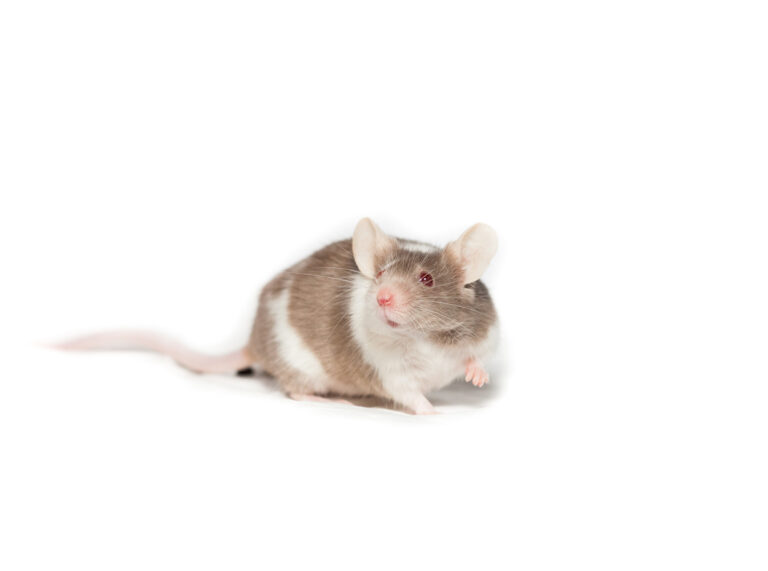Scientists fed rats cola-based soda for 2 months and they got obviously dumber
By now, you probably thought that you had heard it enough as a kid to know better: sugary drinks aren’t good for you and they should definitely not be consumed on a daily basis. They’ll rot your brain—quite literally, as we’ll see in a short moment.
And yet, despite the fact that soft drink consumption in the US dipped again for the 13th straight year in 2018, the country still has some of the highest consumption rates in the world, with over 50 per cent of respondents of an international Statista survey stating that they consumed sugary drinks at least multiple times in a week, if not every day.
Can you hear the sound of all those poor pearly whites slowly decaying and eventually falling off as you read this too?
Energy drinks and juices aside, when one thinks of other soft drink options, popular cola-based products such as Coca-Cola and Pepsi obviously come to mind. Heck, even after the majority of the world realised just how much damage the ‘normal’ versions of these sugary delights could do to us—think diabetes, heart disease, tooth decay and liver complications, to name a few—the multinational beverage corporations behind those sodas managed to fool us into thinking ‘diet’, ‘zero’ and ‘max’ options were the miracle solution to all of our problems.
Newsflash: just like real sweeteners, fake sweeteners come with a myriad of health issues. But enough with the scolding, we’re actually here to prove just how bad cola-based beverages are, and in order to do so, we got a little bit of help from a couple of adventurous and thirsty rats.
While the debate is still ongoing about whether sodas with damaging sugar levels should include warning labels, there is now new evidence to suggest that long-term consumption of sugary beverages, more specifically cola-based ones, can impair cognition, cause cellular distress and result in memory issues.
How do we know this, you ask? Well, a team of Brazilian researchers took it upon themselves to bring the fizzy drink industry down by conducting a two-month experiment recently published in the journal Experimental Gerontology. The assessment consisted of feeding rats soft drinks including Coca-Cola and Pepsi in an attempt to learn more about their impact on someone’s brain.
First, the scientists separated the rats into three age groups: two-month, eight-month and 14-month olds. Each of those age groups were then split into water-drinking and cola-and-water-drinking cohorts. After 57 days, they then ran the rodents through maze-based behaviour testing. Ten days after that, the rats were euthanised so that the scientists could examine any differences in their brains.
While the water-drinking animals were perfectly fine, the cola addicts were in a completely different state. The soda-sipping younger rats, the two and eight months old, showed memory impairment in multiple maze-based tests, although the older ones did not. In other words, it seemed like their sugar intake had directly messed up their memory skills.
Upon further inspection, the scientists discovered that the soda groups had all sustained varying degrees of damage to the frontal cortex—which controls vital mental functions like attention, memory and judgement—as well as the hippocampus, which plays a major role in both memory and learning.
Though the rodents were killed too soon for the researchers to fully confirm other potential symptoms that could have resulted from their cola-based diet, in humans, frontal cortex damage has previously been linked to personality changes and over-impulsivity, while injury to the hippocampus is thought to play a significant role in illnesses like anxiety, depression, bipolar disorder, schizophrenia, and more.
Of course, it should be noted that this specific study was rooted in long-term exposure, suggesting that, had the rats been fed Coca-Cola or Pepsi only once every now and then during those 67 days, they probably wouldn’t have been affected at all—a theory that can be supported by the fact that the oldest rats, whose brains were most fully-formed, were least affected by soda rations.
Then again, it would be stupid to completely ignore just how addictive sugar (and therefore soda) is:
@kalistadwyer Reply to @raychill00 miss it everyday tho 😭 #coke #cola #soda #coffee #coffeeaddict
♬ original sound - kalista dwyer
While we highly doubt we’ll see the Centers for Disease Control and Prevention (CDC) update its preventions on sugary drinks any time soon, we won’t be surprised—and hopefully, neither will you—when soda cans come with warning labels similar to the ones shown on packs of cigarettes.






